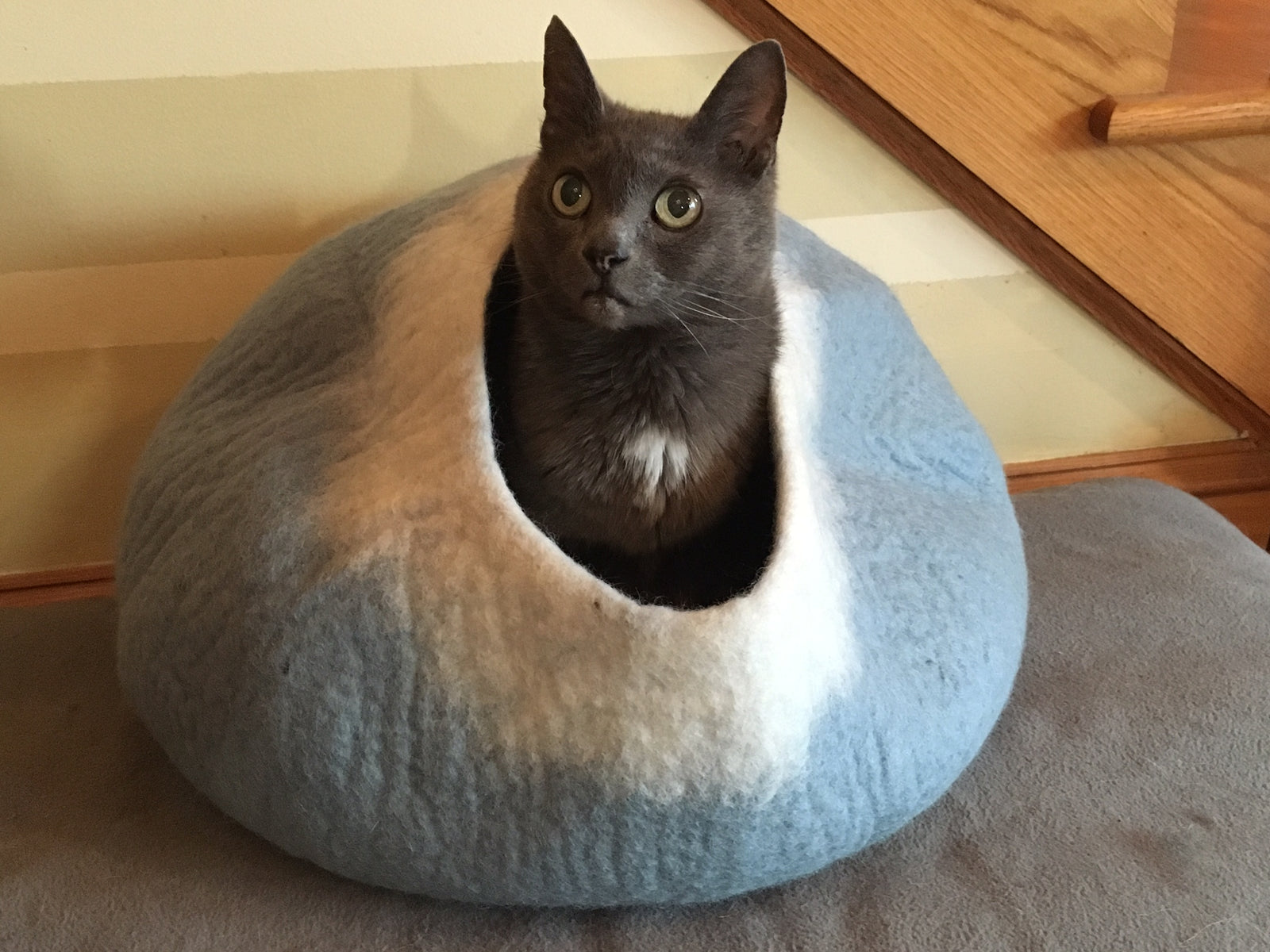A study was recently published by researchers in Australia and New Zealand identifying five personality types in domestic cats, using a model commonly used to describe personality traits in people. The study was performed with the idea that different strategies could be employed to deal with individual cats with differing personalities. "'The 'Feline Five': An exploration of personality in pet cats (Felis catus)" was published by the online journal PLOS One.
Their study utilized a model used in human personality research known as the Five-Factor Model, which uses common language to describe personality. In the Five-Factor Model, human personality can be described by five broad factors: openness to experience, conscientiousness, extraversion, agreeableness, and neuroticism. Each factor comprises several correlated and specific factors. Extraversion, for example, is said to include the related qualities of gregariousness, warmth, and assertiveness. From the Chinese Medicine perspective, these five personality traits could be described as Wood, Metal, Fire, Earth, and Water.
The personalities of 2,802 pet cats from South Australia and New Zealand were rated by their owners, using a survey measuring 52 personality traits.
Analysis of cat owner responses suggests there are five reliable factors that depict domestic cat personality: neuroticism, extraversion, dominance, impulsiveness, and agreeableness. Researchers called these personality factors the Feline Five.
According to the study, neuroticism reflects the traits of insecurity, anxiousness, fearfulness of people, suspiciousness, and shyness. From a TCVM perspective, these traits correspond to the Water personality. The Water element is ruled by the kidneys and bladder; these cats commonly develop urinary tract disease. Flower essences may help these animals be more confident.
Dominance includes bullying as well as the characteristics of dominance and aggressiveness toward other cats. In TCVM, this corresponds to the Wood personality. These animals act out when they feel angry or irritated. The Wood element is ruled by the liver and gall bladder, commonly resulting in liver disease, pancreatitis, and seizures. Flower essences may help calm these animals.
Impulsiveness traits include erraticism and recklessness. This represents the opposite of the Metal personality, which likes order and discipline. When order and discipline are denied, recklessness can occur. The Metal element is ruled by the lungs and large intestine; health problems associated with this element include asthma and constipation. Flower essences may help these animals focus.
Agreeableness traits include being affectionate, friendly toward people, and gentleness. This perfectly describes the Earth personality. The Earth element is ruled by the stomach and spleen - the organs of digestion. Common problems include inflammatory bowel disease, vomiting, and diarrhea. These animals tend to become obese if diet is not carefully controlled.
Extraversion traits include being active, vigilant, curious, inquisitive, inventive, and smart. These are the Fire animals - those that want to be the center of attention, the party animal. The Fire element is ruled by the heart; health issues include heart disease and heart failure. Flower essences may help decrease the constant demand for attention.
The research team believes the Feline Five can be used to improve the welfare of pet cats through personalized management strategies. They stated: "Highly Impulsive cats for example, may be reacting to something stressful in their environment, whereas cats with low Agreeableness scores, showing irritability may indicate underlying pain or illness. Thus, the need for a systematic and holistic approach to personality that includes both the individual pet cat and its environment is recommended, and opens the door to future interdisciplinary intervention."
From a Traditional Chinese Veterinary Medicine perspective, the personality traits are associated with one of the five elements. By understanding the organs associated with the element, it is possible to support the body with food, herbs, and environmental enrichment.
Which personality do you see in your own cat?
We live with three gray cats; they are all Metal personalities. They dislike change and love to have a daily routine that doesn't change. All are prone to asthma and coughing when the air is dry (Metal is ruled by the lung.) Our fourth cat is white and orange. He is a Wood personality, commonly acting out and being aggressive toward people and animals when things are not going his way.

